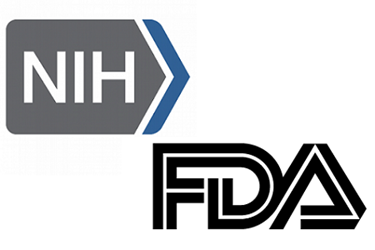FDA, NIH Release Draft Template For Clinical Trial Protocols
By Jof Enriquez,
Follow me on Twitter @jofenriq

The U.S. Food and Drug Administration (FDA) and the National Institutes of Health (NIH) have released a draft clinical trial protocol template for Investigational Device Exemption (IDE) or Investigational New Drug (IND) applications.
According to Peter Marks, M.D., Ph.D., director of FDA’s Center for Biologics Evaluation and Research (CBER), up to 85 percent of investigators have participated in only one clinical trial in their careers. The draft template would provide them a standardized format for clinical trial protocols, something lacking in existing guidance documents such as the International Organization for Standardization's (ISO) Clinical Investigation of Medical Devices for Human Subjects – Good Clinical Practice (ISO 14155:2011).
The draft template, developed by the NIH-FDA Joint Leadership Council (JLC), contains instructional and sample text for investigators writing Phase 2 or phase 3 clinical trial protocols that require IDE or IND applications.
"Our agencies hope that the availability of the template and instructional information enables investigators to prepare protocols that are consistent and well organized, contain all the information necessary for the clinical trials to be properly reviewed, and follow the ICH E6 Good Clinical Practice guidance. Better organized, high-quality protocols will also expedite the review process at both agencies," Dr. Marks wrote in an FDA Voice blog.
"The agencies’ goal in developing the template is to ensure investigators prepare protocols that are organized consistently and contain all the information necessary to enable efficient and timely review," echoed the press release from NIH.
FDA and NIH are seeking public comments on the utility of the template and on the clarity of the accompanying instructional guidance from investigators, investigator-sponsors, institutional review board members, and other stakeholders. Responses can be submitted through April 17, 2016.
According to RAPS, while the draft template is specific for NIH-sponsored clinical trials, FDA plans to integrate the document with similar efforts, such as the common protocol template developed by TransCelerate Biopharma, "to help ensure consistency for the medical product development community."
In 2015, FDA established a clinical trials program and publicly reported IDE performance metrics in support of its clinical trial enterprise priority.
"There are few responsibilities at FDA more important than reviewing the design and outcomes of clinical trials," Barbara D. Buch, M.D., CBER’s associate director for medicine, wrote in a previous blog post. "Understanding the science behind the trials — and the individuals included in them — helps us to ensure that the medical products we approve are safe and effective."
The House-approved 21st Century Cures Act seeks to streamline clinical trials further, in addition to boosting funding for FDA regulation and NIH research.
